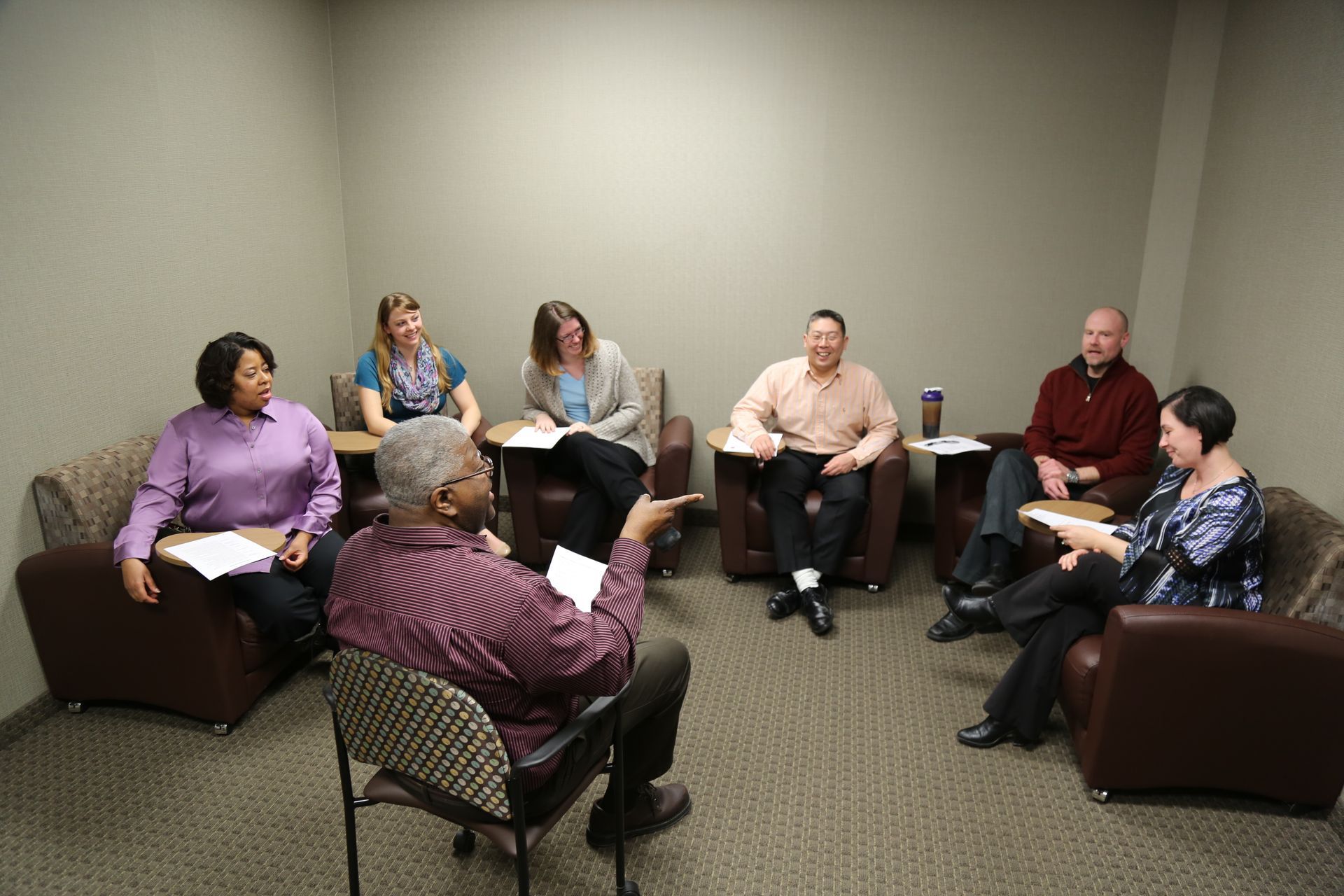Depression Support Groups: A Lifeline In Your Time Of Need-💜
CNS Healthcare • September 27, 2025
When life happens and you find yourself dealing with mental health challenges, especially depression, it might be time to ask for help. And you're not alone...one in five adults in the United States experience a mental health disorder every year.
Depression support groups can provide the guidance, connection, and support you and your loved ones need in a time of overwhelm or sadness. Keep reading to see how connecting regularly with others can make a real difference.
Key Takeaways
- Around one in five adults in the United States struggles with a mental health disorder every year.
- Depression support groups provide safe spaces to share experiences with others who are dealing with issues like depression, anxiety, or bipolar disorder.
- Trained facilitators and those with similar experiences lead these meetings, usually through community centers, online, and through organizations like CNS Healthcare, the National Alliance on Mental Illness and the Depression and Bipolar Support Alliance.
- You can also receive specialized support for areas like LGBTQ+ concerns, grief recovery, ADHD, and veterans support groups.
- You can find local or online groups with NAMI’s Affiliate Finder tool, the DBSA directory, the National Helpline at 1-800-662-HELP (4357), or by calling/texting 988 for crisis support.
What Are Depression Support Groups?
Depression support groups serve as an effective way for people who face mental health disorders like depression, bipolar disorder, or anxiety disorders to meet and talk about their shared experiences.
These groups usually meet through community centers, chat rooms, universities, or through non-profit organizations like CNS Healthcare, the National Alliance on Mental Illness and the Depression and Bipolar Support Alliance.
These types of support groups provide a valuable and safe space for sharing stories and to learn coping skills that can improve attendees lives. Group members discuss their experiences and challenges with various mood disorders, life events, or alcohol use, and create solutions for managing these issues.
Sessions are often peer groups, led by people who have lived through similar experiences or are trained moderators as opposed to licensed professional counselors or clinical social workers.
No one should feel alone while facing mental health issues.
Some meetings are more specific and focus on topics like depression related to family therapy, young adults, grief support, or recovery support, for example, after going through traumatic events.
Depression support groups meet regularly both in person and online, making them easily accessible in Detroit, or your local area. They offer participants a great solution for emotional support and community all in one.
Resource centers like Mental Health America can also help connect you to group therapy sessions near you, or direct you toward the necessary providers to discuss treatment options if needed.
Key Benefits of Joining a Depression Support Group
Joining a depression support group can connect you with others who understand what you're going through. By sharing experiences, you'll gain perspective, as well as learn practical coping strategies that can help you navigate depression in your daily life.
A Safe Space to Share Experiences
Depression support groups are a safe and welcoming space where you can talk about your mental health conditions without fear of judgment. Peer-led support group meetings encourage an open and honest conversation between members.
Every person in your group will have their own experience with depression or related health topics like grief, empty nest syndrome, divorce, and more. These self-help groups may not include an actual therapist, but instead rely on members and a trained facilitator for emotional support and education.
However, you'll be able to find the right support for your needs, since many options exist. Instead of in person support groups, you may prefer to connect with other people struggling with depression through online communities on social media, or even a hybrid format.
Organizations such as the Depression Association of America, Mental Health America, and CNS Healthcare can also provide you with local resources in Michigan and beyond.
Peer Support and Coping Strategies
Peer support groups and online groups for depression focus on sharing practical coping strategies and discussing how to manage symptoms with the help of routines, mindfulness exercises, and advice from mental health professionals. Many group members find relief knowing they are not going through it alone as they gain support.
Support group facilitators will guide all discussions, ensuring that everyone has the opportunity to share in each meeting. Young adults, LGBTQ+ members, veterans, and others can all benefit from a supportive community as well as quality treatment from mental health experts.
How to Find the Right Depression Support Group
Finding the right depression support group for your needs can make a big difference in improving your journey to better mental health. Here are some ways to get started:
- Visit NAMI's website to search for local mental health organizations near you in Detroit and beyond. They offer a variety of options including NAMI family support group for family members too.
- Search DBSA’s website for local support DBSA support groups by typing in your ZIP code and connecting with others nearby.
- Check out online resources from Mental Health America. They provide information for better community health, as well as crisis resources.
- Research online support groups if you prefer to meet virtually or can't attend meetings in person.
- Call or text 988 if you are in need of immediate crisis support.
- For urgent mental health or substance use issues, contact the National Helpline at 1-800-662-HELP (4357) for assistance. You can also send your ZIP code to 435748 (HELP4U) for quick support options.
- Speak with your health care provider to get recommendations for local support groups and treatment for your unique situation.
Get Support At CNS
Depression support groups can be a lifeline resource when you are strugging through a difficult time. They also provide a safe space where you can share your experiences without being judged.
Finding the right support services for your needs can be simple, thanks to local organizations like CNS Healthcare in Detroit, and national organizations with local affiliates like Mental Health America and NAMI. These groups provide you with plenty of options, including online communities when local groups may be limited.
For more information on local support groups in Detroit, Michigan, make sure to visit us at CNS Healthcare. It's time to create the meaningful connections necessary for your recovery and well-being!
FAQs
1. What are depression support groups and how do they offer support?
Depression support groups connect those struggling similar mental health challenges. They offer a community setting where attendees can share their experiences with depression, as well as learn coping skills and get emotional support.
2. Who organizes depression support communities?
Many nonprofit organizations, like the Depression and Bipolar Support Alliance, run these support communities. Some local organizations that provide community services also sponsor groups that cover a wide range of needs.
3. What warning signs might signal that joining a group may help?
Warning signs may include continuous sadness, isolating yourself from activities or loved ones, changes with your sleep or eating habits, or feelings of hopelessness. If you observe many of these symptoms in yourself or others, it's important to get the right mental health care or connect with family therapists.
4. How is the Crisis Lifeline related to depression support groups?
The Crisis Lifeline is pivotal in connecting those with urgent mental health needs to trained therapists who can offer immediate safety steps and comfort.
Newsletter
Stay up to date by subscribing to our newsletter.
Recent Posts
SHARE THIS POST WITH YOUR FRIENDS













